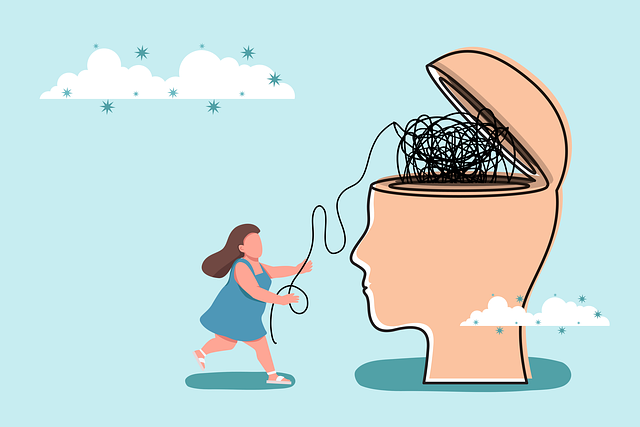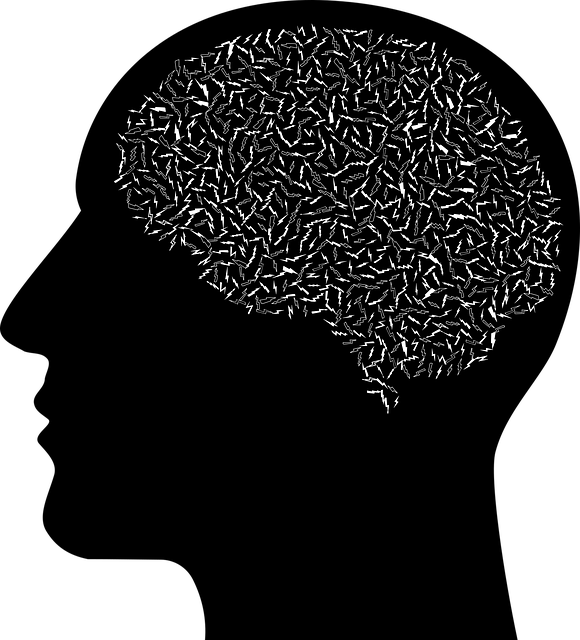Englewood Russian Speaking Therapy (ERST) provides culturally sensitive mental wellness self-assessment tools tailored to diverse communities, addressing unique challenges like language barriers and cultural nuances. Their approach, incorporating age, gender, and socioeconomic factors, promotes mental health awareness and effective stress management strategies within the ERST community. By collaborating with experts and integrating burnout prevention for healthcare providers, ERST ensures their tools are accurate, relevant, and transformative, enhancing positive outcomes for all individuals seeking support.
Mental wellness self-assessment tools play a crucial role in empowering individuals to take charge of their mental health. This article explores the development of such tools, focusing on the unique needs of the Englewood Russian-speaking community. We delve into the challenges and considerations specific to this demographic, highlighting cultural sensitivities and linguistic barriers. Additionally, we provide insights into creating effective assessment tools that bridge these gaps, enhancing mental health support for Englewood’s diverse population, including Russian speakers.
- Understanding Mental Wellness Self-Assessment Tools
- Challenges and Considerations in Development for Englewood Russian Speaking Therapy
- Creating Effective Assessment Tools for Enhanced Mental Health Support
Understanding Mental Wellness Self-Assessment Tools

Mental wellness self-assessment tools play a pivotal role in helping individuals gain valuable insights into their mental health and well-being. These tools are designed to provide an initial assessment, allowing people to identify potential areas of concern, such as stress management, anxiety, or depression prevention. By utilizing these assessments, users can make informed decisions about seeking professional help or exploring suitable Mental Wellness Coaching Programs Development.
Englewood Russian Speaking Therapy offers a unique perspective on this matter, recognizing the cultural and linguistic nuances that may impact an individual’s mental wellness journey. Their expertise lies in creating self-assessment tools tailored to diverse communities, ensuring accessibility and effectiveness. These assessments aim to demystify mental health discussions, empower individuals to take charge of their well-being, and serve as a stepping stone towards enhancing overall mental wellness and the successful implementation of Stress Management strategies.
Challenges and Considerations in Development for Englewood Russian Speaking Therapy

Developing self-assessment tools for mental wellness tailored to Englewood Russian Speaking Therapy (ERST) presents unique challenges and considerations. One significant hurdle is addressing cultural nuances and language barriers that may impact an individual’s perception of their emotional well-being. ERST clients might have specific experiences and perspectives shaped by their cultural background, which can differ greatly from mainstream mental health practices. Therefore, the tools must be culturally sensitive and inclusive to ensure accurate assessments.
Additionally, incorporating effective Emotional Well-being Promotion Techniques and Stress Management Workshops Organization tailored for Russian-speaking individuals is essential. These strategies should consider age, gender, and socioeconomic factors to foster Emotional Regulation and provide practical solutions for stress management within the context of ERST. Customizing these aspects ensures that the self-assessment tools resonate with the target population, enhancing their effectiveness in promoting mental health awareness and support among Englewood’s Russian-speaking community.
Creating Effective Assessment Tools for Enhanced Mental Health Support

Mental wellness self-assessment tools play a pivotal role in enhancing access to mental health support, especially within diverse communities like Englewood Russian Speaking Therapy’s target audience. Effective assessment tools must be culturally sensitive and tailored to address the unique needs of individuals from various backgrounds. By incorporating elements of Healthcare Provider Cultural Competency Training and Social Skills Training, these assessments can break down barriers to care and foster inclusive practices.
The development process should involve collaboration with experts in mental health, cultural anthropology, and community leaders to ensure accuracy and relevance. Additionally, integrating burnout prevention strategies for healthcare providers is essential to maintain the integrity of the assessments and the support system as a whole. These tools aim to not only identify mental wellness issues but also guide tailored interventions, ultimately promoting better outcomes for individuals seeking mental health services.
Mental wellness self-assessment tools play a pivotal role in enhancing access to mental health support, particularly for underserved communities like Englewood’s Russian-speaking population. As highlighted through the exploration of challenges and considerations specific to Englewood Russian Speaking Therapy, culturally sensitive and linguistically appropriate tools are essential. By leveraging effective assessment techniques discussed in this article, developers can create resources that accurately capture mental wellness states and guide targeted interventions. Ultimately, these tools have the potential to revolutionize mental health support, ensuring no one falls through the cracks, especially within diverse communities.














